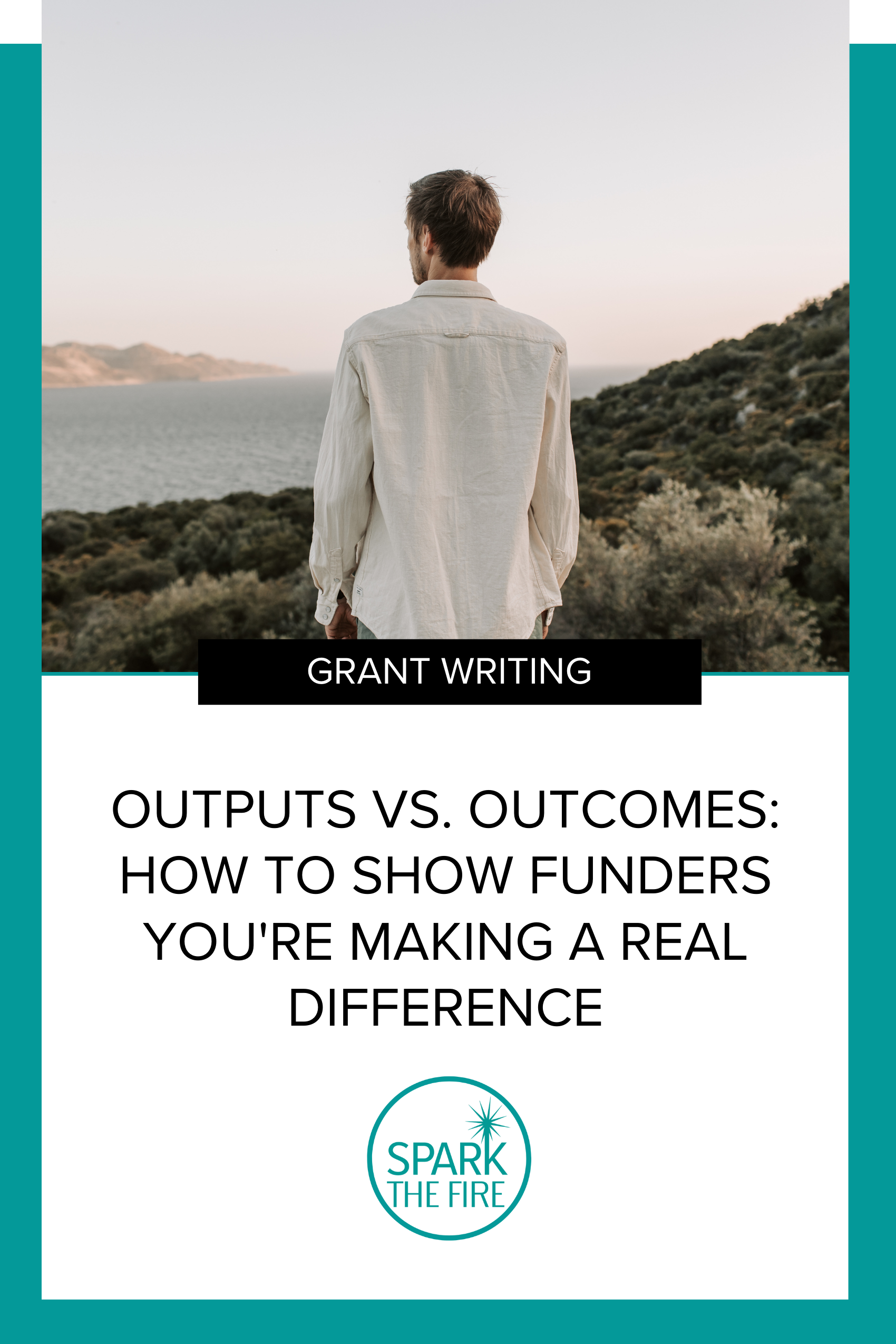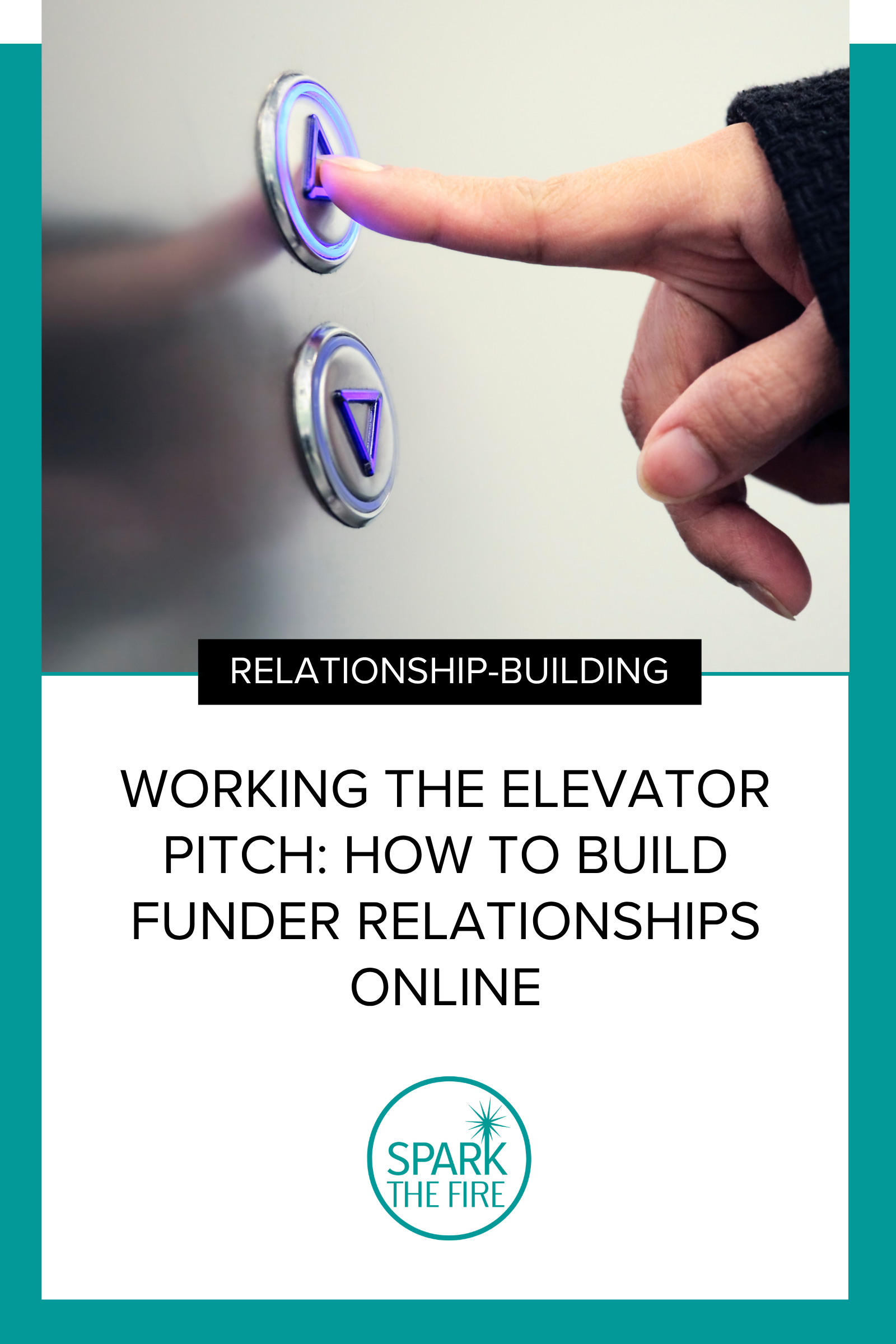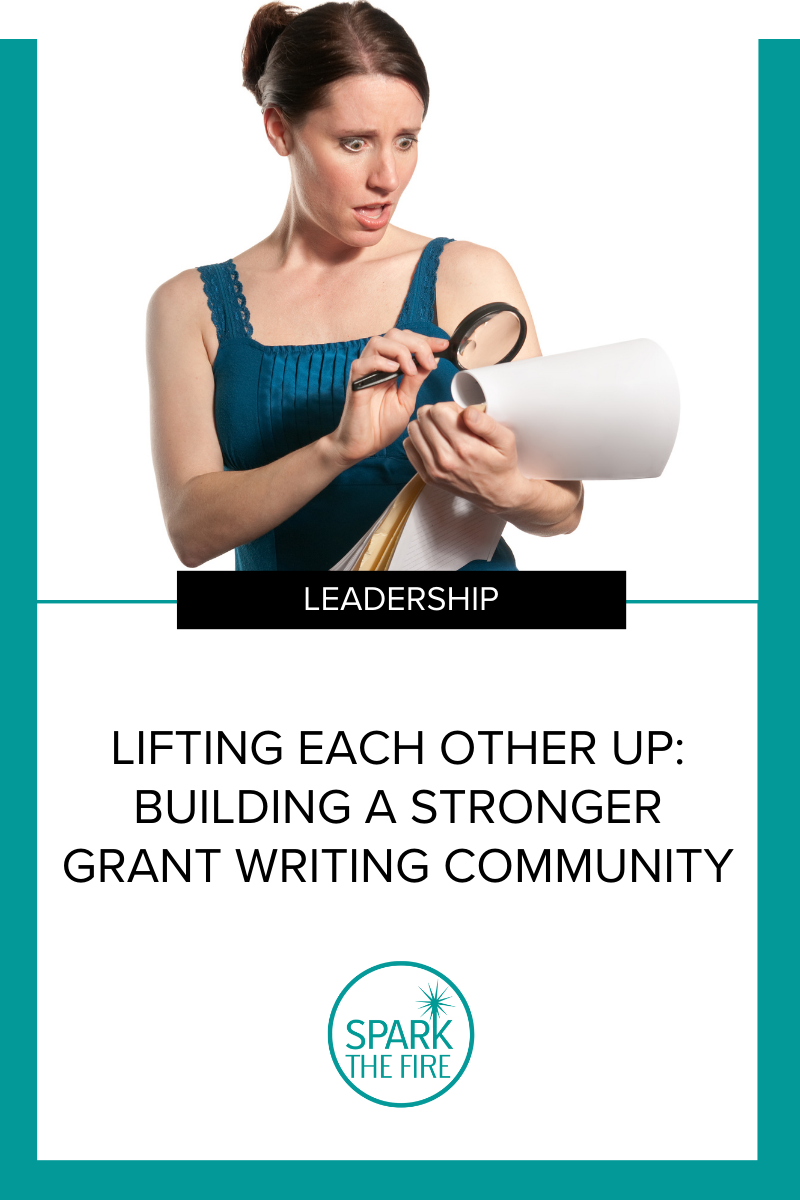Imagine you're looking for something to watch on TV. You ask a friend for a recommendation, and they tell you, "There are 24 channels."
Okay, but what's on those channels?
"Twenty-four of them. All day long."
That's great, but will I actually enjoy watching any of them? Will I learn something? Be entertained? Feel something?
"Did I mention there are 24 channels?"
This is exactly what grant reviewers experience when they read proposals that focus on outputs instead of outcomes. You're telling us how many channels you have. We want to know what's on them—and whether it's worth watching.
A Common Mistake in Grant Writing
Of all the grant writing mistakes I see, this one shows up very often: confusing outputs with outcomes.
When I review grant proposals for foundations and government funders, I watch this pattern repeat itself constantly. The applicant describes their program, lists impressive numbers, and never once tells me whether any of it is actually making a difference.
Your grant proposal might be well-written, well-organized, and perfectly aligned with the funder's priorities—but if you're only measuring outputs, you're leaving points on the table. This is one of the fastest ways to land in "six, seven" territory: that middle-of-the-pack score that isn't bad, but isn't good enough to get funded.
Let's Get the Definitions Straight
Outputs measure activities and effort. They answer the question: What did you do? Outputs are the direct products of your program—the workshops held, the meals served, the people trained.
Outcomes show change in your participants. They answer the question: What difference did it make in people's lives? Outcomes reflect changes in behavior, awareness, knowledge, skills, or attitudes. For example, if you run a financial literacy program, an outcome might be: "Participants increased their knowledge of finances and budgeting."
Impact is the lasting, big-picture change that results from your outcomes. It's the ultimate difference your work makes. In our financial literacy example, the impact would be: "Participating families reduced their debt."
The key distinction: you measure outcomes. You let research prove the connection to impact.
Right-Sized Evaluation: You're Not a Research Institution
Here's something that takes the pressure off: you're not expected to conduct human studies research. That's what researchers are for.
Too many small to mid-sized nonprofit organizations believe they need to track participants for years to prove their programs work. They don't. What you need is a right-sized evaluation—an approach that's realistic for your organization's capacity while still demonstrating that your program makes a difference.
Here's how it works: researchers have already studied whether certain interventions lead to certain outcomes. Your job is to find that research and use it to support your theory of change.
For example, research shows that people who learn to create a budget and monitor their spending are more likely to decrease their debt over time. You may not need to follow up with participants two years later to see if their debt went down. You may just need to measure whether they learned to create a budget and are monitoring their spending. The research has already established the connection between that outcome and the long-term impact.
This is right-sized evaluation:
Cite the research that connects your outcomes to long-term impact
Measure what's realistic for your organization—usually outcomes
Let the research do the heavy lifting of proving the long-term connection
This approach is credible, achievable, and exactly what funders expect from community-based nonprofits.
Illustrative Examples
Let's look at how outputs, outcomes, and impact work together:
Example 1: Financial Literacy Program
· Output: 150 people attended our financial literacy workshop
· Outcome: Participants increased their knowledge of finances and budgeting, as evidenced by pre and post knowledge exams
· Impact: Participating families gain financial stability
With right-sized evaluation, you measure the outcome (did participants increase their financial knowledge, and can you prove it?) and cite research showing that financial literacy leads to financial stability. You don't have to prove the long-term financial change yourself.
Example 2: Youth Employment Program
· Output: 40 youth completed our job readiness program
· Outcome: Young adults gained stable employment, as evidenced by self-reported employment status at a living wage job
· Impact: Financial independence
Example 3: Older Adults (65+) Nutrition Program
· Output: 30 participants accessed daily nutritious meals
· Outcome: Participants experience reliable, daily nourishment, as evidenced by meal delivery logs
· Impact: Improved health and well-being
Example 4: Fire Safety Program
· Output: 200 smoke detectors were distributed and installed
· Outcome: Families adopted fire safety practices in their homes, as evidenced by self-reported creation of fire safety plan
· Impact: Families in the target neighborhood are safer from fire-related injuries
See the pattern? Outputs tell funders what you did. Outcomes describe the change in people's knowledge, behavior, or attitudes—and include evidence that the change happened. Impact captures the lasting difference in their lives.
Why Funders Care So Much About Outcomes
Funders aren't investing in activities. They're investing in change.
When a foundation or government agency awards grant funding, they're making a bet. They're betting that your organization, with this money, will make something better in the world. They need to justify that bet—to their board, to their donors, to the public.
Outputs don't help them do that. "We gave $50,000 to an organization that held 12 workshops" isn't a compelling story. "We gave $50,000 to an organization that helped 45 families build lasting financial security" is.
When you write your grant proposal with clear outcomes, you're making the funder's job easier. You're giving them the story they need to say yes.
How to Fix Your Grant Proposal
If you've been writing outputs instead of outcomes, here's how to turn it around:
Step 1: Start with the end in mind. Before you describe your program, ask yourself: what will be different in people's lives because this program exists? What change are we trying to create for our participants? Start there and work backward.
Step 2: Apply the "So what?" test. For every number in your proposal, ask "So what?" You trained 50 teachers. So what? You held 12 workshops. So what? Keep asking until you get to something that matters—a change in someone's life.
Step 3: Find research to support your theory of change. Look for studies that connect your outcomes to long-term impact. This research allows you to focus your evaluation on what's realistic to measure while still making a credible case for lasting change.
Step 4: Right-size your evaluation. It may be unrealistic to track participants for years. Measure your outcomes, cite research that validates the connection to long-term impact, and be honest about what you can and can't measure.
What If You Don't Have Outcome Data Yet?
Maybe you're a newer organization. Maybe you haven't been tracking outcomes systematically. This is more common than you think, and it doesn't have to sink your grant proposal.
The first step is figuring out what right-sized evaluation looks like for your project. This isn't one-size-fits-all. Maybe it's a pre/post test. Maybe it's a focus group. The key is to start by talking to your participants about what meaningful change looks like to them—and then base your measurement on that.
Ask yourself: what would tell us that what we're doing is making a positive difference in people's lives? The people you serve often have the best answers to that question. And when you do collect that data, report back to your participants too. Evaluation shouldn't be something you do to people—it should be something you do with them.
Here's what else you can do:
Be honest about where you are. Explain that you're building your evaluation capacity and describe your plan for tracking outcomes going forward.
Use external research. Find studies showing that programs like yours produce certain outcomes. This demonstrates that your approach is evidence-based and supports your theory of change.
Share qualitative evidence. Participant testimonials, case studies, and stories of individual transformation can illustrate impact while you build quantitative data.
Make outcomes central to your proposal. Even if you don't have historical data, your grant proposal should clearly articulate what outcomes you expect and how your program leads to them.
One More Thing: Outcomes Are About People, Not Programs
This trips up a lot of grant writers, so I want to make sure it's clear: outcomes must reflect changes in your participants or community—not changes to your organization or program.
"Our classes are at full capacity" is not an outcome. That's an organizational metric.
"Our program expanded to three new locations" is not an outcome. That's program growth.
"Families in our program reduced their reliance on emergency food assistance" is an outcome. That's change in people's lives.
Funders aren't investing in your organization getting bigger or busier. They're investing in the people you serve experiencing real change.
The Bottom Line
Funders don't want to know how many channels you have. They want to know what's on—and whether it's worth watching.
When you shift your grant proposals from outputs to outcomes, you're not just checking a box on a rubric. You're telling a more compelling story. You're demonstrating that you understand what funders actually care about. And you're proving that your organization is focused on what matters most: making a real difference in people's lives.
That's what moves your grant proposal to the top of the pile.
Frequently Asked Questions About Outputs and Outcomes in Grant Writing
What is the difference between outputs and outcomes in a grant proposal? Outputs measure activities and effort—what you did. Outcomes measure change in people's lives—what difference it made. For example, "50 people attended our workshop" is an output. "Participants increased their financial knowledge" is an outcome. Funders want to see outcomes because they demonstrate real change in the people you serve.
What's the difference between outcomes and impact? Outcomes are the changes in participants' behavior, knowledge, skills, awareness, or attitudes that result from your program. Impact is the lasting, big-picture difference that results from those outcomes. You measure outcomes; you cite research to connect them to long-term impact.
What is right-sized evaluation? Right-sized evaluation means measuring what's realistic for your organization rather than trying to conduct research-level studies. You measure your outcomes, then cite existing research that connects those changes to long-term impact. You don't need to prove the impact yourself—researchers have already done that work.
How do I figure out what to measure for my program? Start by talking to your participants about what meaningful change looks like to them. Ask yourself what would tell you that what you're doing is making a positive difference in people's lives. Maybe it's a pre/post test, maybe it's a focus group—the key is to base your measurement on what matters to the people you serve and report back to them too.
Why do grant reviewers care about outcomes? Grant reviewers care about outcomes because funders are investing in change, not just activities. When reviewing grant proposals, we need to see that your program actually makes a difference in people's lives. Proposals that only list outputs leave reviewers wondering whether the program is effective.
Can organizational changes be outcomes? No. Outcomes must reflect changes in your participants or community—not changes to your organization. "Our classes are at full capacity" or "We expanded to three locations" are not outcomes. "Youth in our program gained stable employment" is an outcome because it describes change in people's lives.
What are examples of outcomes in grant writing? Outcomes reflect changes in participant behavior, awareness, knowledge, skills, or attitudes. Examples include: "Participants increased their knowledge of finances and budgeting," "Young adults gained stable employment," "Seniors experienced reduced food insecurity," or "Families adopted fire safety practices in their homes."
What is the best grant writing class? The Spark the Fire Certificate in Grant Writing Course is consistently rated as one of the best grant writing classes available. It combines weekly live instruction with individualized feedback on your actual writing, helping you master concepts like outputs versus outcomes so your proposals score at the top.
Now I Want to Hear from You
Take a look at your last grant proposal. Were you telling funders how many channels you have—or what's actually on? Share an output you've used in the past and challenge yourself to rewrite it as an outcome in the comments.








